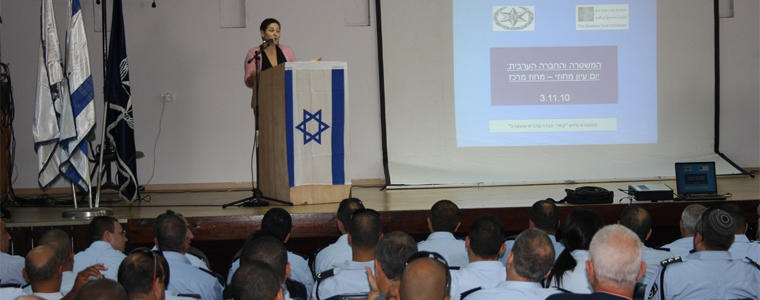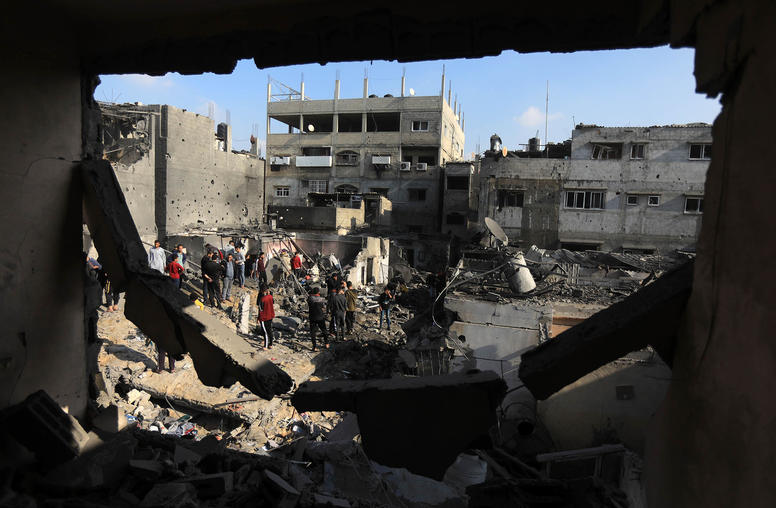Effective and fair policing is fundamental not only to maintain law and order but to the health of democracy and social cohesion in modern states. Recognizing the centrality of improving relations between Arab society and Israeli police to the stability of Israeli society and safety of Arab communities, USIP grantee The Abraham Fund Initiatives embarked on the Arab Society - Police Initiative, a growing national program aimed at improving the relationship between Israeli police and Arab society by enhancing the scope and quality of services provided to Israel's Arab citizens, and by equipping the police with the multiculturalskills and awareness required to serve a diverse society.

Working in partnership with the Israel National Police and Arab society representatives, The Abraham Fund Initiatives has developed a comprehensive intervention strategy working to revolutionize police training and practice by helping officers mend the police's fractured relations with Arab society and address problems of over- and underpolicing; develop models of participation, cooperation and partnership with Arab society founded in a community-based approach to policing; and undertake research and promote activities to strengthen the efforts of individuals working on the ground by gaining higher-level support, and learning from successes around the world.
Since May 2011, with the support of the United States Institute of Peace, The Abraham Fund Initiatives has held more than 80 training sessions, with more than 2,000 police participants; created a station-community model that fosters direct communication between police station staff and community members to address crime problems facing Arab communities; developed training curricula for wide implementation; strengthened and diversified connections with Arab leadership in order to bolster the abilityof the Arab community to express its needs and opinions regarding policing, public safety and quality of life in their communities; initiated work with professionals within the police and Arab society to improve official responses to instances of domestic violence in Arab communities in Israel, and advised the police commissioner on the police's internal preparations for a potential wave of demonstrations and for shaping their image vis-a-vis policy toward Arab demonstrators.
One police commander, who participated in an Abraham Fund activity, noted, "the importance of community policing is in creating a link to the community - they know everything that's going on, [and] act as a bridge to influential individuals in the community. We have to change the approach to the job of the police - it is not only to deal with crime, we have to build trust with the community, have to relate to them outside the context of crime."
A participant from an Arab community group working with a local police station concluded, "we can feel a substantial change in the involvement and relations of the police...with the community. Their presence is felt more and there is a feeling of greater efficacy. I attribute this to the actions of The Abraham Fund Initiatives. I feel like we're moving in the right direction."
Explore Further



